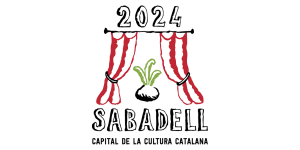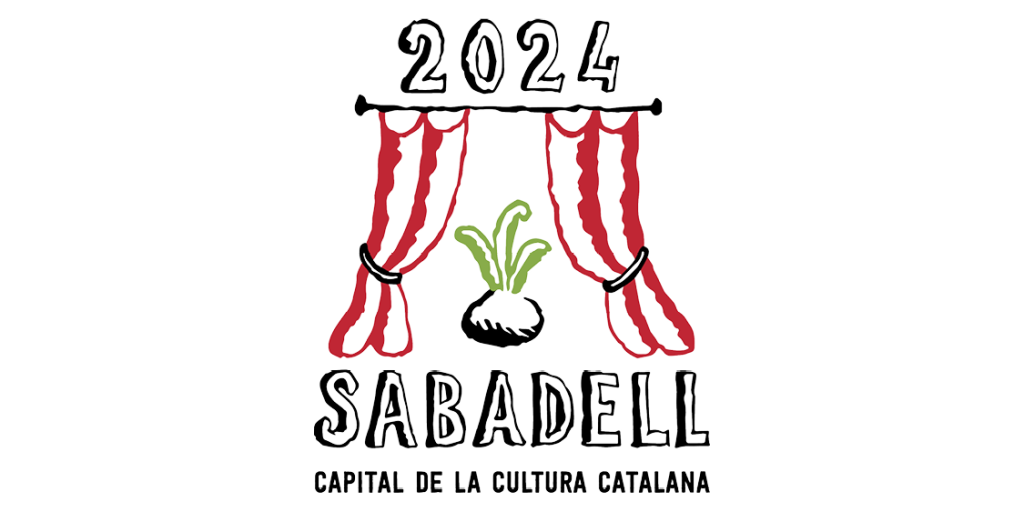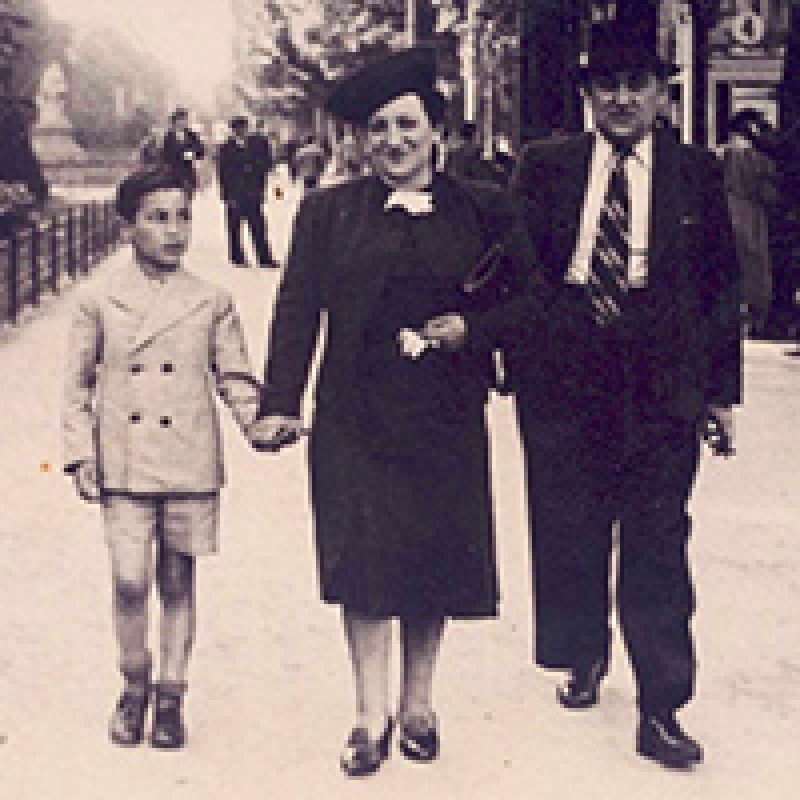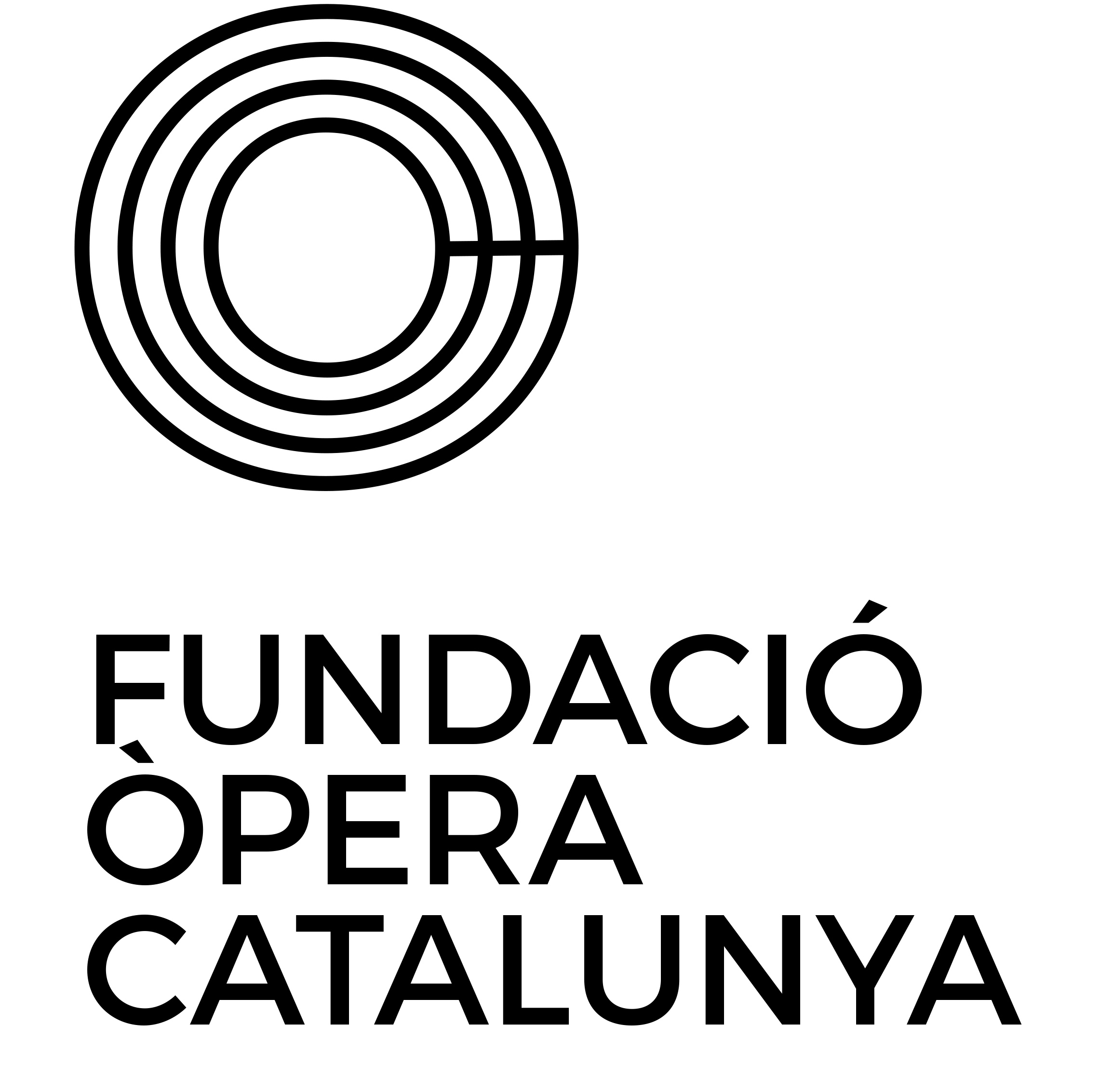by Howard Moody
On January 26, the La Faràndula Theater in Sabadell will host the premiere of the community opera Push! , a work by the British composer Howard Moody based on the moving story of Belgian pianist and Holocaust survivor Simon Gronowski. This production, which will close the events of Sabadell as the Catalan Culture Capital 2024, will involve members of the local community.
Push! is a one-act opera, with a libretto and music by British composer Howard Moody, born in Salisbury in 1964 and regarded as a musical expert. The work tells the story of the escape from the Holocaust of 12-year-old Belgian boy Simon Gronowski, who fled from a train on April 19, 1943. The title refers to the central theme of the opera, as Simon was pushed off the train by his mother, who died three days later in Auschwitz.
Initially commissioned by Battle Festival de Bexhill (United Kingdom) in co-production with Glyndebourne in 2016, Push! has been performed five more times: at the Salisbury International Arts Festival and Chichester Cathedral (United Kingdom) in 2018, at the House of Commons in London and La Monnaie in Brussels in 2019, and at the Ringsaker Opera (Norway) in June 2024.
The world is experiencing turbulent times in social, economic, and political aspects. Fascism has resurged with strength in several European countries and is already governing in the birthplace of opera, Italy. What response can be given from the cultural sphere? From the Fundació Òpera a Catalunya and the Orquestra Simfònica del Vallès, two key institutions in Sabadell’s cultural landscape, it was decided that the best way was to promote a project where artists and the public could build a shared experience together, enriching all participants. The goal has been to create a community opera to remind us of the lessons of the past and contribute to building a better future. This is the motivation behind Push!, the production based on Howard Moody’s work, which will close the events of Sabadell’s cultural capital year.
Alongside the three solo voices, there will be a choir made up of around forty children from the city’s Conservatory and the Local Educational Plan, a small professional choir—playing the role of guards—a choir of about eighty adult singers drawn from various choral groups in the city (the Coral Belles Arts de Sabadell, the Els Notes choir, and the Ohana Choir from the Music Conservatory), and fifteen professional musicians from the Orquestra Simfònica del Vallès.
Header photo: © Hugo Segers
PUSH!
Howard Moody (1964-)
26/01/2025
One-act opera, with libretto and music by British composer Howard Moody.
Commissioned by Battle Festival. Produced in partnership with Glyndebourne and the De La Warr Pavilion. Premiered as part of the ROOT 1066 International Festival, 1 October 2016.
Approximate running time: 60 min.
CAST
Toni Marsol
Simon
Laia Frigolé
Simon's sister
Pau Camero
Guard
ARTISTIC FILE
| Production coordination | Jordi Cos | Repetiteur pianists | Miquel Villalba / Joan Espuny / Arnau Balcells |
| Musical direction | Manel Valdivieso | Translation of the libretto | Joan Sellent |
| Stage direction | Dani Coma | Production and organization | Fundació Òpera a Catalunya and Orquestra Simfònica del Vallès |
| Choirs coordination | Buia Reixach |
Coral Belles Arts de Sabadell
Els Notes choir from Sabadell
Ohana Choir from the Music Conservatory of Sabadell
Choir of the Sabadell Conservatory
Schools of the Local Educational Plan of Sabadell
Cor Amics de l’Òpera de Sabadell
Musicians from the Orquestra Simfònica del Vallès
Learn more
press room
A production by
With the collaboration of
Playlist
PODCAST
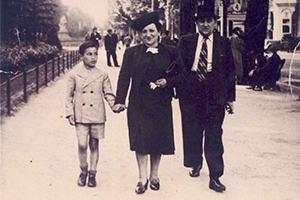
The inspiring figure of Push!, Simon Gronowski, walking with his parents.


